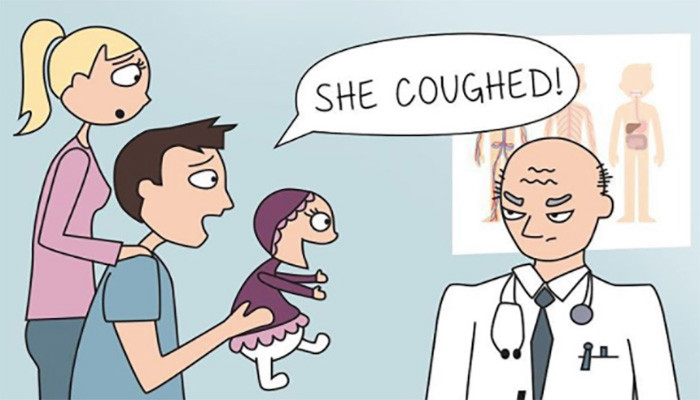You’re doing it wrong: 7 bad habits of well-meaning parents

courtesy scary mommy
In many ways, modern parenting is a marked improvement over past generations. Many parents today are much more involved, supportive, gentle, and engaged in their children’s daily lives.
On the other hand, my wife and I have observed several not-so-good habits of contemporary parenting. They are as follows:
- “Playdates.” I don’t know if this is a thing in your part of the world, but every so often my wife or I will get a text from a parent asking if we can schedule a playdate for our kids to get together. Our answer is always the same: “Send them over when free and see if it works out.” Play can and should be spontaneous and parents shouldn’t be in charge of free time. I’m fine making exceptions to big or otherwise special events, but there’s no good reason to schedule a “playdate.” If you feel otherwise, it could be that you’re over-scheduled and not allowing ample free time for your child.
- Not eating meals together. Several of our friends feed their children separate meals before enjoying an “adult meal” later. Not only does this teach your children bad eating habits, but it reduces your ability to mold and informally teach and learn from them several times a day. For a better relationship with your kids and their diet, consider feeding your children as the French do.
- Unlimited screen time. These atrocious behavior turns your kids into spoiled brats. Even sweet kids can turn into Verruca Salt at the click of an app. For this very reason, you should limit kids screen time to no more than an hour or two per day, if not a few hours per week. I know Netflix is an awesome babysitter. But the more screen time you grant your children, the worse they’ll behave. Do you want to raise passive vegetables are future adults?
- Overprotective “helicopter” hovering. This is usually seen at modern playgrounds. A well-meaning parent stays within inches of and follows their toddler to every corner of the playground, ready to intervene at any second to prevent a child from skinning their knee. This is inappropriate and frustrating for children. The best way to parent, according to a child therapist I recently spoke to, is to give children “a safe space in a contained place.” Homes, playgrounds, classrooms, are all safe spaces in well-defined places that given your children the room they need to grow without being stifled by an overprotective hand.
- Not letting them fail. This usually manifests itself in the form of doing your children’s homework or creative projects for them so they get good grades; cleaning the house for them because kids admittedly suck at cleaning and it’s annoying to have to teach them over and over again to get it right; or doing everything possible to prevent mistakes. This is unfair and enabling. All of us are who we are because we were allowed to fail. Our children deserve the same. Again, create a safe space in a contained place and then let them fail.
- No punishments (aka consequence free environment). Yelling at children doesn’t work. Creating rewards and punishments for good and bad behavior does. While rewards are proven to be the better motivator of good and independent behavior, punishments should also be used to steer your kids in the right direction. For example, if it takes your five your old two hours to eat his breakfast, threaten “no afternoon outside” or whatever else they value and watch how fast they’ll eat while reducing your frustration.
- Failing to street smart them. Parents and children shouldn’t just live side-by-side. The former should guide and instruct the latter as often as humanly possible. This can be draining, I know. But if you get in the good habit of dining together and discussing with them what’s going on with yours and their daily life, you can work together to figure out the best way to respond and hopefully hit the curve balls that life throws at all of us.
Please note: This is not an indictment or judgment of any parents that struggle with some or all of the above. I have to fight the above as much as anyone. But the default parenting setting of letting your child do whatever they want to avoid cries and confrontation doesn’t help anybody. Long-term behavior is more important and rewarding than short-term gains. We’re all in this together. I wish you success.
